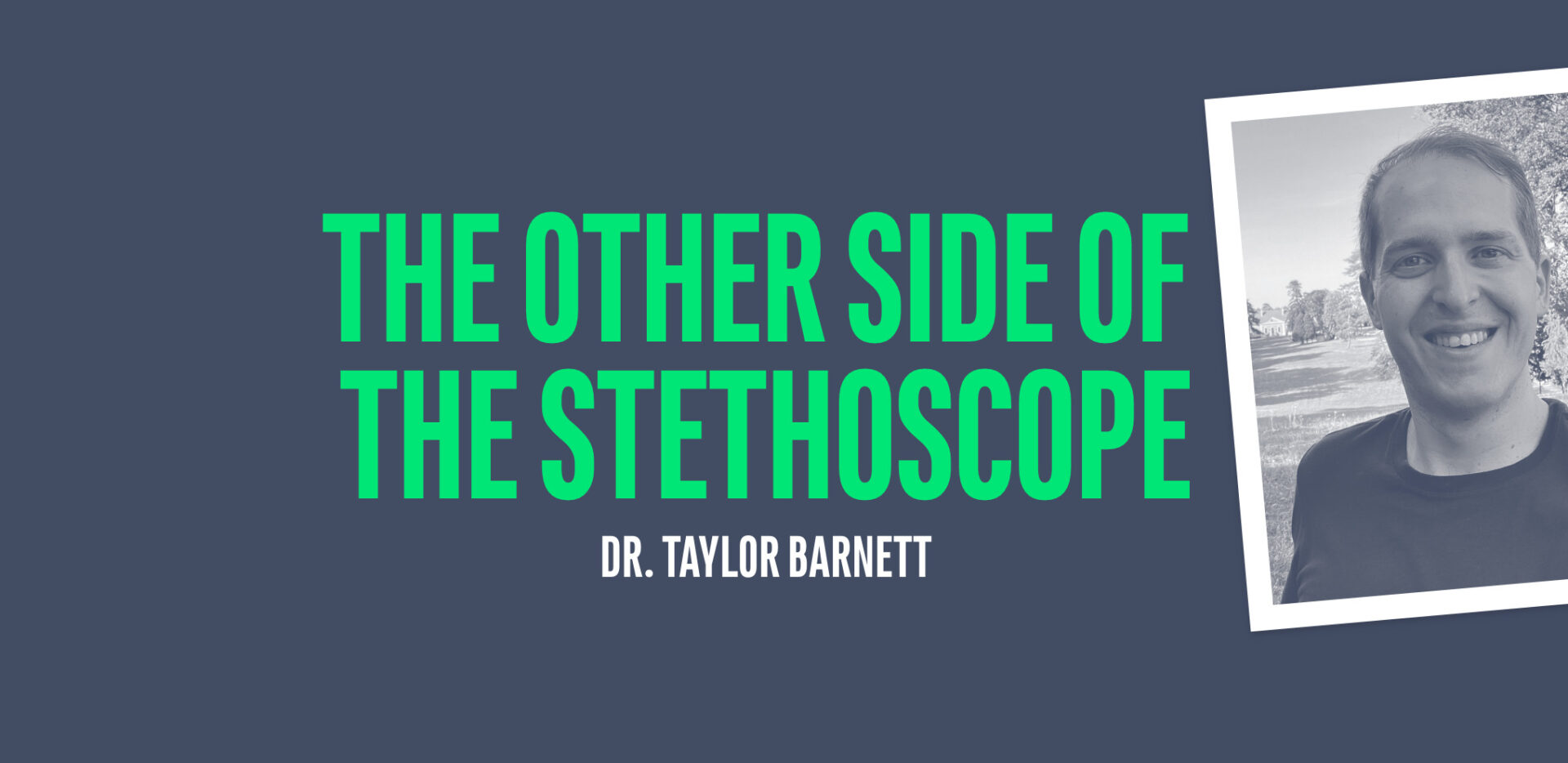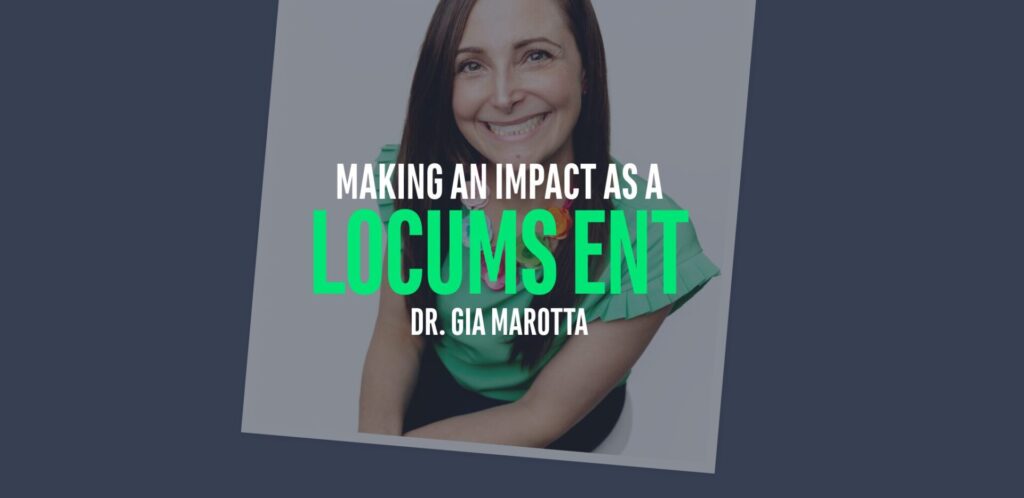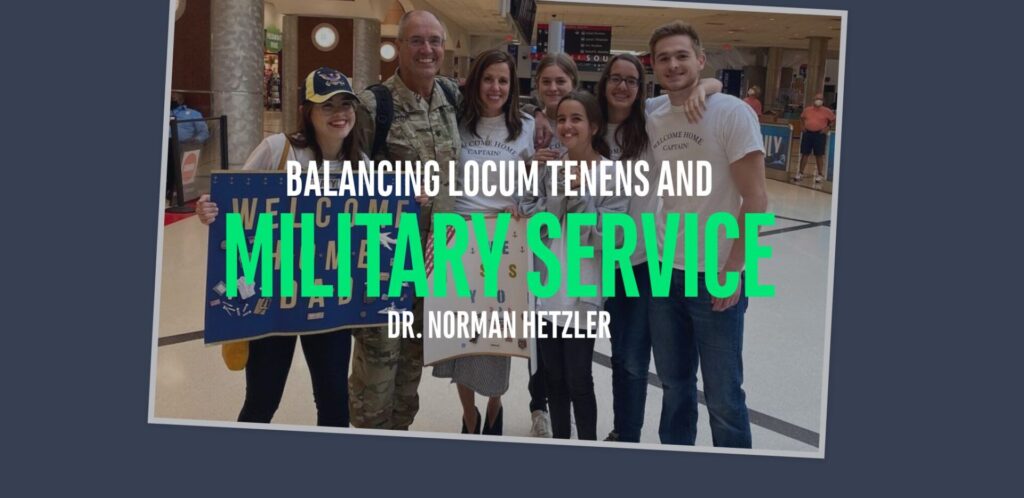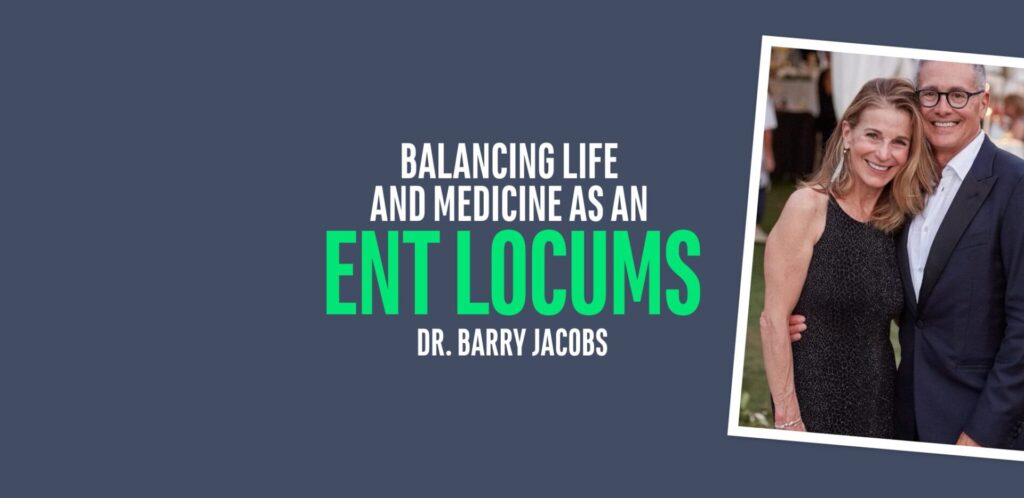Physicians who have been patients themselves often become more empathetic healthcare providers: while medical school teaches them how to treat the disease, first hand experience of the trauma of major illness can teach them how to better treat the patient.
Locums oncologist Dr. Taylor Barnett is a great example: on the eve of his college graduation, a visit to the emergency room led to a cancer diagnosis that would eventually redirect the course of his life. We spoke with him about his history as a cancer survivor, how it contributed to his decision to become an oncologist, and how his experience as a patient informs his approach to patient care.
Here’s what he had to say:
What drew you to medicine, and oncology in particular?
My parents are what first got me interested in medicine. My father is an OBGYN and mother is a nurse midwife, so medicine was dinner table conversation for us. Even from a young age, if my parents got a call, I’d come to the hospital with them, and I found it fascinating.
I did take pre-med courses in college, but I thought of medicine as a backup option. At the time, I was more interested in teaching or foreign languages.
What really sold me on medicine was my own experience with it.
The week of my graduation from college, I went to the emergency room because I’d been experiencing bad tinnitus. I credit the doctor who treated me in the ER for the fact that I was able to get diagnosed. In the review of symptoms––which is where we ask standard questions like whether someone is experiencing fever or chills––he asked if I had been having groin heaviness. That wasn’t a question I would think to ask in an exam, but when he did, I said, now that I think of it, maybe. That led him to perform an exam, and he found a lump.
Not only did I have an extraordinarily comprehensive doctor, but it was also pretty quiet in the ER that night, so they worked everything up. It turned out there was nothing wrong with my hearing. But they did an ultrasound that showed a mass, which led to a CT scan, which showed enlarged lymph nodes. And they said, Oh, it looks like cancer.
Just a few hours later, I met with a urologist, who took me immediately to surgery. I can’t even promise that level of service here in my hospital [laughs]. It was unreal. I still send that doctor Christmas cards every year.
[After surgery], I went to my graduation. I had a couple of potential ESL jobs abroad lined up, which I thought would be a good way to travel and delay the onset of the real world. But when I got the pathology back, I found out that I had a nonseminomatous tumor.
I saw an oncologist, who told me that I would need to start chemo, because the cancer was already stage three. I knew that testicular cancer was highly curable, so while I was a little bit anxious, I felt at ease and ready to get it done.
I did four cycles of DEP. It was a rough summer––I had to give up on all my other jobs and opportunities that I’d planned. But after I went through chemo and found out I was in remission, I thought, well, I better do something about this.
I felt that I’d been given an opportunity to learn from my experience. I had taken all the pre-med courses, and the MCATs, so that year, I applied to medical school.
As I learned more and more about pathology and pathophysiology of cancer, I knew I wanted to become an oncologist. They say when you go into medicine you follow your own pathology. If you act like a kid, you become a pediatrician. If you’re a little bit anxious, you go into psychiatry. So I thought well, cancer is my pathology, I guess I’ll go into oncology.
How does your history with cancer inform your approach to patient care?
I share my story with patients very freely, and they appreciate that. They like to hear that their doctor is someone who’s been at the other side of the stethoscope.
Whether they find it inspiring, or it gives them confidence, they all find something positive in knowing that. If it gives them what they need, then that’s a good thing.
I have this philosophy that once you’ve mastered something, or something has changed you, it’s your duty to help others with it. I feel like I was given a gift, a second chance if you will, and I wanted to do something with it.
Were there any specific things you took from your experience that you’ve brought to your own practice?
I took a lot from my oncologist. He was always honest, even when he had to be brutally honest.
I think people find comfort in the truth, even if it isn’t a great diagnosis or prognosis. Often they’ve been in a time of uncertainty in trying to figure out what’s wrong with them. When they get a dire diagnosis like cancer, it can obviously be a big pill to swallow, but with it comes clarity. They just need guidance. They need people to show them the way, and to give them a realistic idea of what to expect.
Everybody’s experience is going to be different. Everybody is going to take their diagnosis differently. But overall, what everybody wants is honesty.
That’s how my doctor was with me. He told me straight up what was going to happen, so I would have realistic expectations. He would tell me, there are going to be good days and bad days, so take the good days for what they are, and the bad days we’ll weather through as best we can.
Ultimately, my experience led me to practice in a very similar way. I try to give a realistic portrayal to my patients of what they should anticipate. And to help them come to terms with the fact that, at the end of the day, cancer is a moving target: we may not always hit the target, but we can keep on trying.
I always tell people that we’ll work together: they’ll have their homework, and I’ll have mine. That gives them relief too, because when they get the diagnosis, they often feel like they’re losing control. So I try to remind them that they still have control, and help them use whatever tools and resources they have to the best of their advantage, so they can retain that autonomy.
My goal is to be somebody who is clear cut, who doesn’t beat around the bush, who doesn’t sugarcoat things, who gives them a realistic portrayal of what cancer is. And I couldn’t do that without my own experience, and my oncologist modeling that practice.
Let’s talk about your experience with locum tenens. What made you decide to try locums?
I work for the Air Force, and one of my colleagues [at my hospital] told me about locums jobs. While I love my job and my patients here, I think it’s good for one’s own professional and personal development to get experiences in other environments. I know my time here in the military is finite, and eventually I’ll get out and need experience working in other types of practices.
That’s what initially got me into locums. But once I started doing it, I really liked it. I like learning from how different people practice, and how different clinics are run. Obviously I bring my own insight insofar as delivery and practicing medicine, but I never realized how much I would learn from them, too––as much or more as what they learn from me. That’s what’s made locums such an enriching part of my career, and one of the best career decisions I’ve ever made.
Do you have any advice for other oncologists who might be interested in locums?
Do your research. Take the opportunity to interview and talk to people, ask them questions, and get those answers. Sometimes people are afraid to ask questions, but it’s incredibly important. You want to make sure to do your homework, so you can prepare for your job adequately.
Another thing is to treat every locum job as a learning experience. Each and everywhere you go, you’re going to learn something that will enhance your professional and personal repertoire, and it will make you a better doctor.
I work long hours. And that can fatigue you. But whatever your motivation is for becoming a doctor, keep that up. Look at it as part of achieving your goal of being the best provider you can be for your patients.
That helps me through the more challenging days: the calls in the middle of the night, the late night visits for acute leukemia. I always remember that this is part of why I became a doctor, and learn to appreciate it.
*This interview has been edited for clarity and length.



